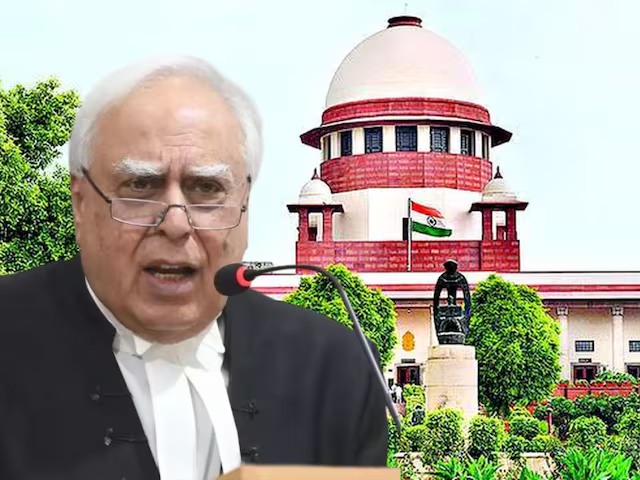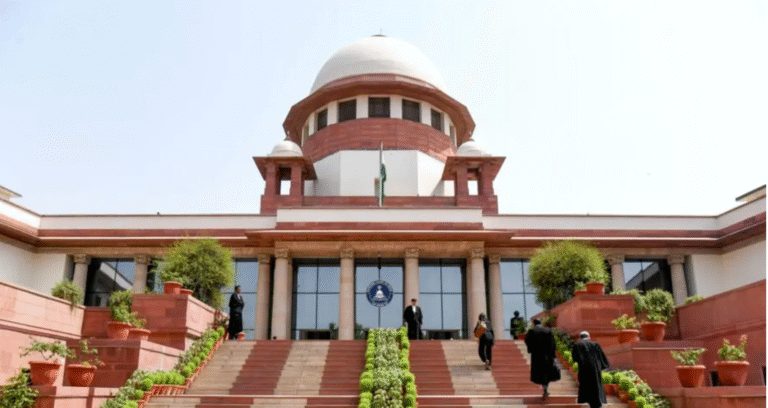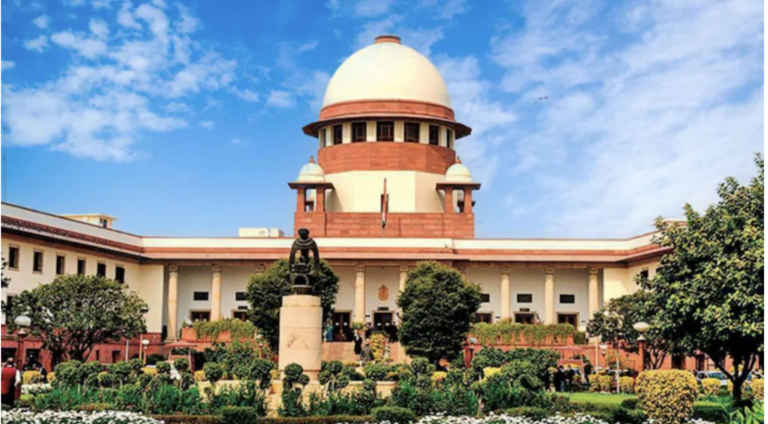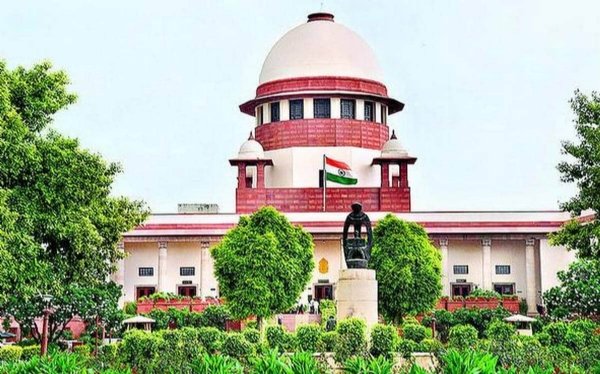Misleading the Supreme Court by citing Overruled Judgment – Complaint Filed with Bar Council against adv. Kapil Sibbal

Mumbai / New Delhi | 06 November 2025:- The Indian Lawyers and Human Rights Activists’ Association’s (ILHRAA) convenor, law student & Human Rights Activist Ayush Tiwari has filed a complaint before the Bar Council of Delhi and the Bar Council of India seeking immediate disciplinary action against Senior Advocate Mr. Kapil Sibal for acts of gross professional misconduct and fraud upon court while settling the draft and also while representing former Minister Anil Deshmukh before the Supreme Court in Special Leave Petition (Crl.) No. 3063 of 2021. Similar complaint is liely to be filed against Adv. Abhishek Manu Singhavi.
The complaint, filed by Mr. Ayush Tiwari, Convenor of the Indian Legal & Human Rights Awareness Association (ILHRAA), categorically asserts—on the basis of documentary and circumstantial evidence—that Senior Advocate Mr. Kapil Sibal, while finalizing the draft of the Special Leave Petition (SLP) and subsequently during oral submissions before the Hon’ble Supreme Court of India, knowingly, wilfully, and dishonestly relied upon an overruled precedent of a Two-Judge Bench in Divine Retreat Centre v. State of Kerala, (2008) 3 SCC 542. The said judgment had taken the view that an accused is entitled to be heard before any judicial direction for investigation by the Central Bureau of Investigation (CBI) is issued.
However, the complainant emphasizes that Mr. Sibal deliberately suppressed the binding ratio of the larger Three-Judge Bench in Romila Thapar v. Union of India, (2018) 10 SCC 753, which has expressly and unequivocally overruled the decision in Divine Retreat Centre. The larger Bench authoritatively laid down the law that an accused person has no right to seek a prior hearing before the commencement of an investigation, and possesses no locus standi to object to or choose the investigating agency.
On 8th April 2021, the Hon’ble Supreme Court, comprising Justices Sanjay Kishan Kaul and Hemant Gupta, dismissed the said SLP at the admission stage, specifically recording the following observation:
“We are unable to accept the contention of Mr. Kapil Sibal, learned Senior Counsel, that even for directing a preliminary inquiry, the petitioner is mandatorily entitled to be heard in his individual capacity…”
By refusing to entertain the SLP, the Hon’ble Court effectively reaffirmed the correctness of the Bombay High Court’s judgment and rejected Mr. Sibal’s principal submission as being contrary to the binding position of law laid down in Romila Thapar (supra).
The element of deliberate dishonesty, the complaint avers, becomes further apparent from the fact that the impugned judgment of the Hon’ble Bombay High Court itself had specifically discussed and distinguished both the above-mentioned judgments — thereby demonstrating that Mr. Sibal was fully aware of the existence, applicability, and binding nature of the larger-bench ruling. Yet, he consciously and strategically relied upon an overruled and inoperative precedent, while concealing the binding decision that directly negated his client’s claim.
It is a well-established principle of professional ethics, as consistently reiterated by the Hon’ble Supreme Court of India, that an advocate—and more particularly, a Senior Advocate—owes a paramount duty of candour, fairness, and complete disclosure to the Court. An advocate is legally and ethically bound to bring to the Court’s attention all relevant facts and precedents, including those that may be adverse to the client’s case or favourable to the opposing party. Suppression or deliberate withholding of such material, including binding judgments, constitutes a fraud upon the Court and amounts to gross professional misconduct, inviting disciplinary as well as penal consequences under the Advocates Act, 1961, the Bar Council of India Rules, and settled judicial pronouncements such as State of Orissa v. Nalinikanta Muduli, (2004) 7 SCC 19, E.S. Reddi , T.V. Choudhary, In re, (1987) 3 SCC 258, Sajid Khan Moyal v. State of Rajasthan, 2014 SCC OnLine Raj 1450, Sunita Pandey v. State of Uttarakhand, 2018 SCC OnLine Utt 933, R. Muthukrishnan v. High Court of Madras, (2019) 16 SCC 407 ; Lal Bahadur Gautam v. State of U.P., (2019) 6 SCC 441, R. Gangadharappa Vs. Kondla Nanjamma ILR 2016 KAR 3029, Hindustan Organic Chemicals Ltd. v. ICI India Ltd., 2017 SCC OnLine Born 74, Sajid Khan Moyal v. State of Rajasthan, 2014 SCC OnLine Raj 1450, Kusha Duruka v. State of Odisha, (2024) 4 SCC 432,
The complaint accuses Mr. Sibal of:
(a) Citing an overruled judgment (Divine Retreat Centre, 2008) while suppressing its overruling in Romila Thapar, 2018.
(b) Misleading the Court regarding the accused’s right of hearing, thereby obstructing an independent corruption inquiry.
(c) Abusing senior-counsel status by lending institutional credibility to a legally untenable argument.
Invoking Section 35 of the Advocates Act, 1961, ILHRAA seeks:
(i) Institution of disciplinary proceedings before the Bar Council of Delhi;
(ii) Immediate suspension of Senior-Advocate designation pending inquiry; and
(iii) Advisory guidelines from the Bar Council of India cautioning all advocates against citing overruled or sub judice authorities.
“The privilege of senior gown carries with it the highest duty of candour. When such privilege is used to shield misconduct, the very sanctity of the Bar is compromised.”
ILHRAA’s statement further recalls the authoritative dictum of the Hon’ble Supreme Court in R.K. Anand v. Delhi High Court, (2009) 8 SCC 106, wherein it was emphatically held that Senior Advocates, by virtue of their elevated status, bear a greater ethical and moral responsibility to uphold the dignity and integrity of the legal profession, and any conduct that tends to pollute the stream of justice or lower the prestige of the Bar warrants strict disciplinary consequences. The Court therein observed that the special privileges attached to the designation of Senior Advocate are inseparably linked with the highest standards of honesty, fairness, and professional propriety.
This principle, ILHRAA notes, was reaffirmed in Yatin Oza v. High Court of Gujarat, 2021 SCC OnLine SC 1004, where the Supreme Court upheld the withdrawal of the senior designation of an advocate found guilty of acts and statements that brought disrepute to the noble profession and undermined public confidence in the institution of justice. The Association submits that such precedents clearly establish that engaging in conduct amounting to deliberate deception of the Court or suppression of binding law constitutes behaviour wholly unbecoming of a Senior Advocate and calls for exemplary disciplinary action to preserve the sanctity of the Bar and the majesty of justice.
The Association announced that it will soon submit:
(a) A representation to the Chief Justice of India and the President of India seeking stricter scrutiny of senior-counsel appointments;
(b) A memorandum to the Bar Council of India demanding that all advocates disclose the precedential status of every authority cited; and
(c) A proposal for an Ethics Audit Cell within each High Court to flag misuse of overruled law.
According to Law student and convenor of ILHRAA:
“The public’s faith in justice depends on the Bar’s honesty. No robe of seniority can shield deceit.”



